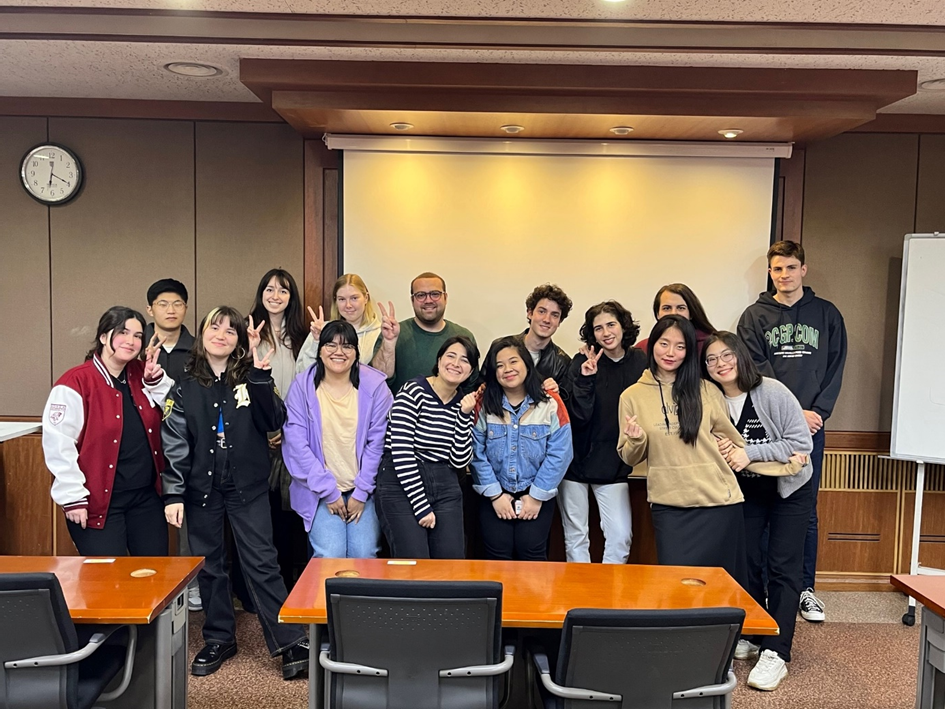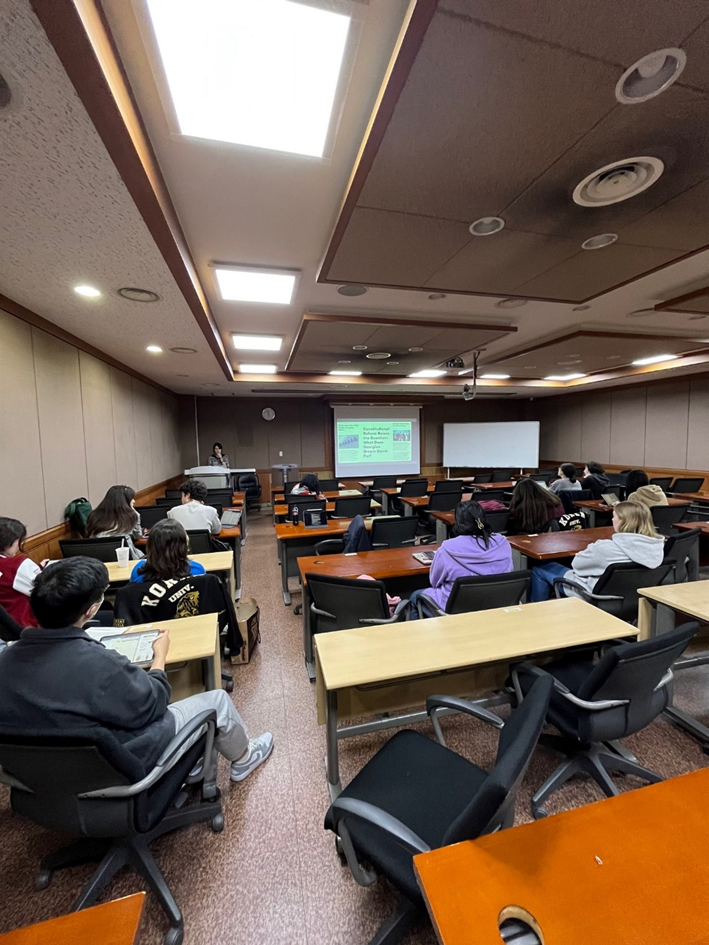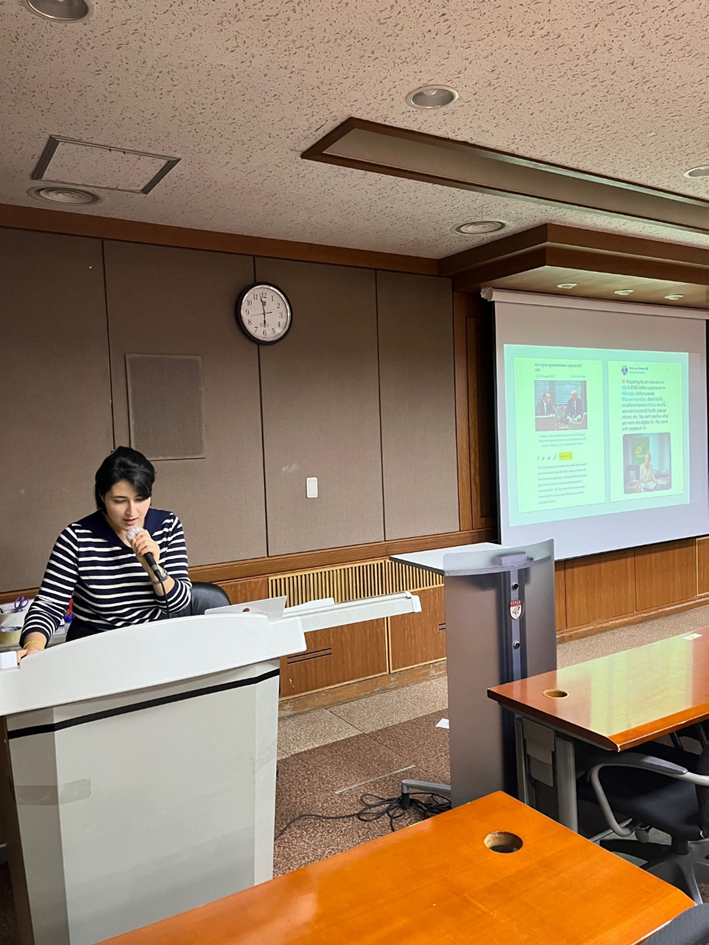EU Society: Fourth Meeting (April 18, 2023)
페이지 정보

본문



The session started with the information that the following two weeks won’t have an EU society meeting due to the upcoming midterm period.
This weeks presentation deals with the topic of Georgia and its rocky road to get into the European Union. Nino went over the History of EU-Georgia relations. Especially the 2003 rose revolution started the European integration path of Georgia after the resignation of the president. This marked the end of soviet era leadership in Georgia. Since then, Georgia participated in different integration programs e.g. Erasmus+, visa free travel for Georgians into the EU and exchange programs. The 2008 Russian invasion of Georgia affected how Georgians view Russia and increased the wish of many for European integration. Nino also showed a short video on why Georgians currently don’t like their pro-Russian government. Currently, the EU requires Georgia to make reforms to continue its path towards the EU but the pro-Russian government does not implement them as a strategy to not offend Russia with the ongoing Ukraine War. Recently, there were protests held in March 2023 to protest against the governments proposed “anti-agents” law (which is similar to the one in Russia). The protests had a lot of backing since the law was against the Georgians populations wish to join the EU.
The following discussion round was started with the question of “how should the EU respond to Georgia’s membership aspirations?”. The EU wants to integrate Georgia but this might be difficult for Georgia for several reasons. One example would be that Georgia wouldn’t be able to follow the sanctions against Russia since its own economy is so intertwined with the Russian one and Georgia isn’t making any steps to become less dependent on Russia in this regard. A question raised from a member was “why do Georgians vote for a pro-Russian government if they want to join the EU?”. According to Nino, the previous pro-EU government did some human rights violation at the end of their tenure to continue to stay in power and the party was mainly funded by oligarchs which started to have too much influence on the party.
After the discussion, members of the EU society were invited to have dinner together.
- 이전글EU Society: Fifth Meeting (May 9, 2023) 23.06.07
- 다음글EU Society: Third Meeting (April 11th) 23.04.17
댓글목록
등록된 댓글이 없습니다.










